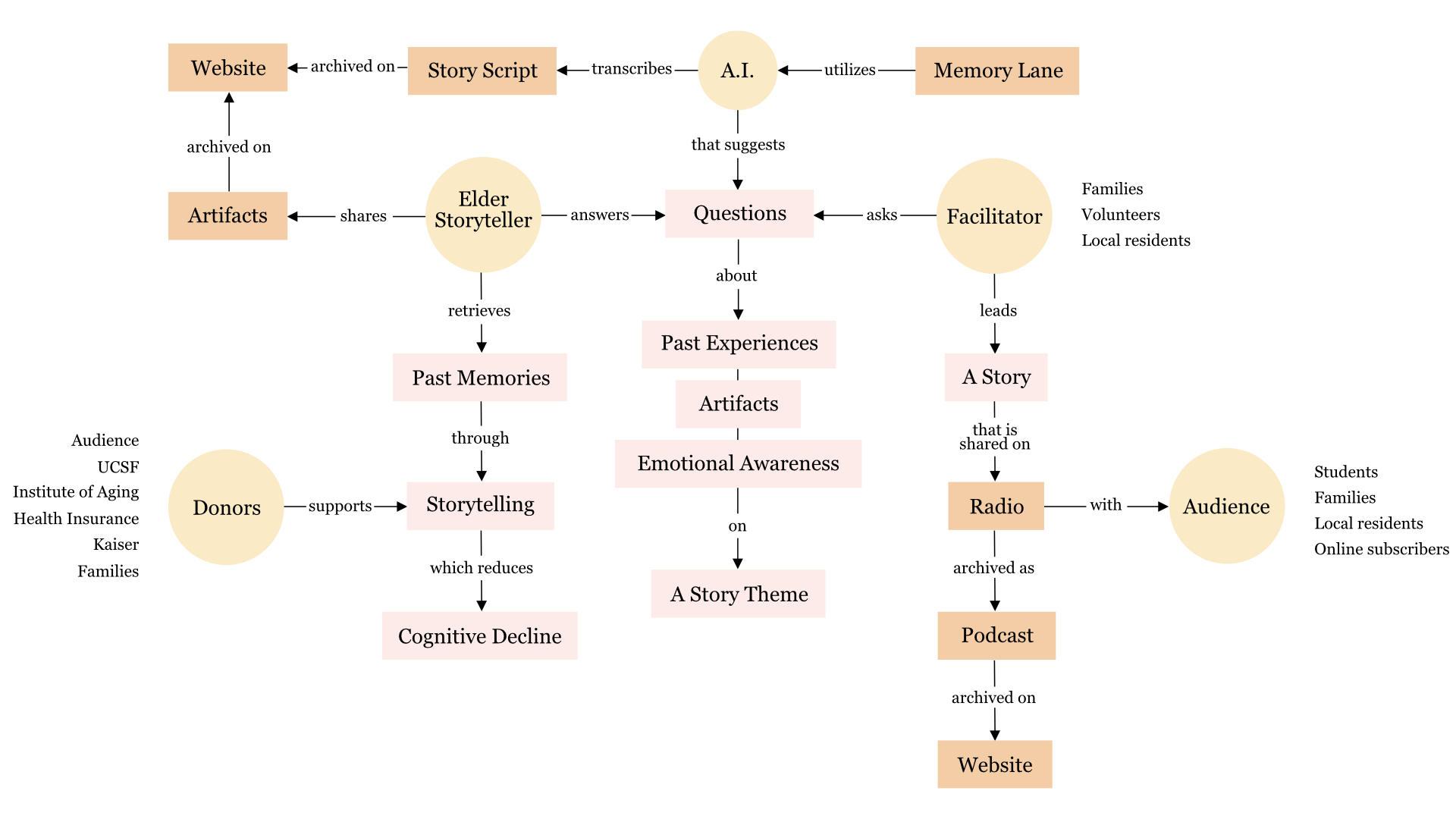Brief:
Create an experience that helps older adults be more independent while enabling caregivers to provide optimal support.
Memory Lane
Fighting Cognitive Decline Through Storytelling
Collaborators
Eugina Chun - Visual Design
Will Liang - Prototyping
Omar Ansari - Concept Development, Design Research
Duration
5 Weeks
Tools
Sketch, Keynote, PS
Background
Eugina, Will, and I came together as a group because of our common interest in leveraging technology to enhance health and wellness. As designers, we also share a desire to create analog interactions between people to encourage human interaction. We used this as one of our guiding design principles as we explored ways to help elders live more autonomous lives.
We wanted to understand the systemic relationship between autonomy and health in order to identify the issues that hinder independence.
Based on our research, we recognized the need to intervene in this reinforcing loop to give elders a chance to push back against a cycle that challenges their independence.
We chose to focus on cognitive decline because of its foundational role in their overall wellness.
Our research lead us to examine the role of storytelling as a tool in fighting cognitive decline. It also revealed that elder care improved when caregivers were familiar with their patient’s personal story.
Which inspired our hypothesis…
Engaging in storytelling gives elders the opportunity to recall their past which can fight cognitive decline.
Family members and care providers who facilitate the storytelling process will provide better care to elders.
We brainstormed ideas ranging from a Podcast to a series of live events held in public libraries across the country.
Rather than choosing one we thought “Why not combine the two?”
We began to imagine a live event that fought cognitive decline and isolation through storytelling while engaging communities. Local volunteers would act as facilitators to help structure and later archive the stories as a Podcast, helping them reach a broader audience.
But we ran into a problem…
After user testing our prototype with seniors, we began to recognize that our prospective storytellers may need more help. Our design originally called for volunteers to help facilitate the storytelling session but with little interviewing experience, they might find it difficult to elicit engaging stories.
Which we tried to solve with a story crafting guide to help give their stories more structure.
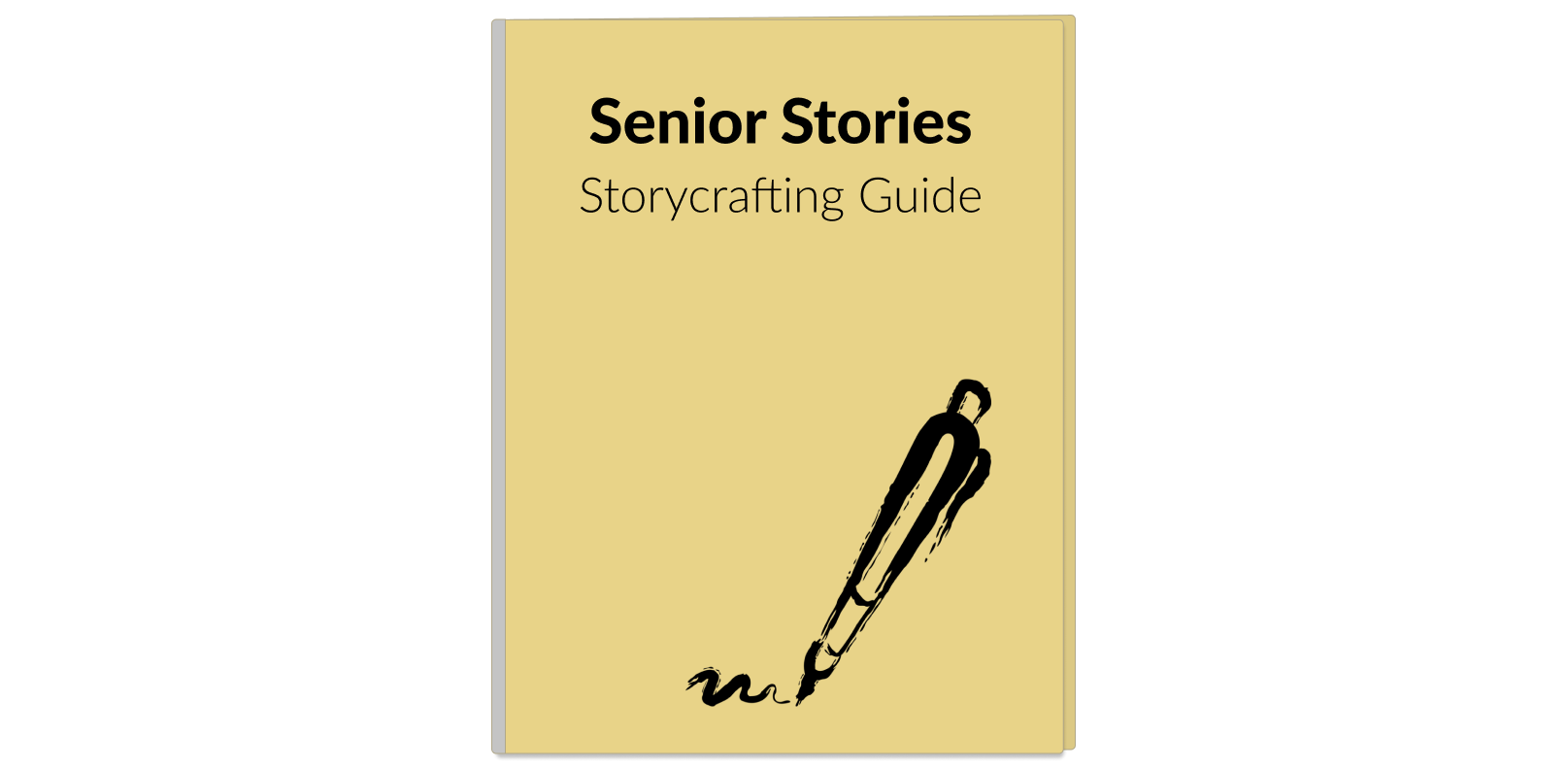
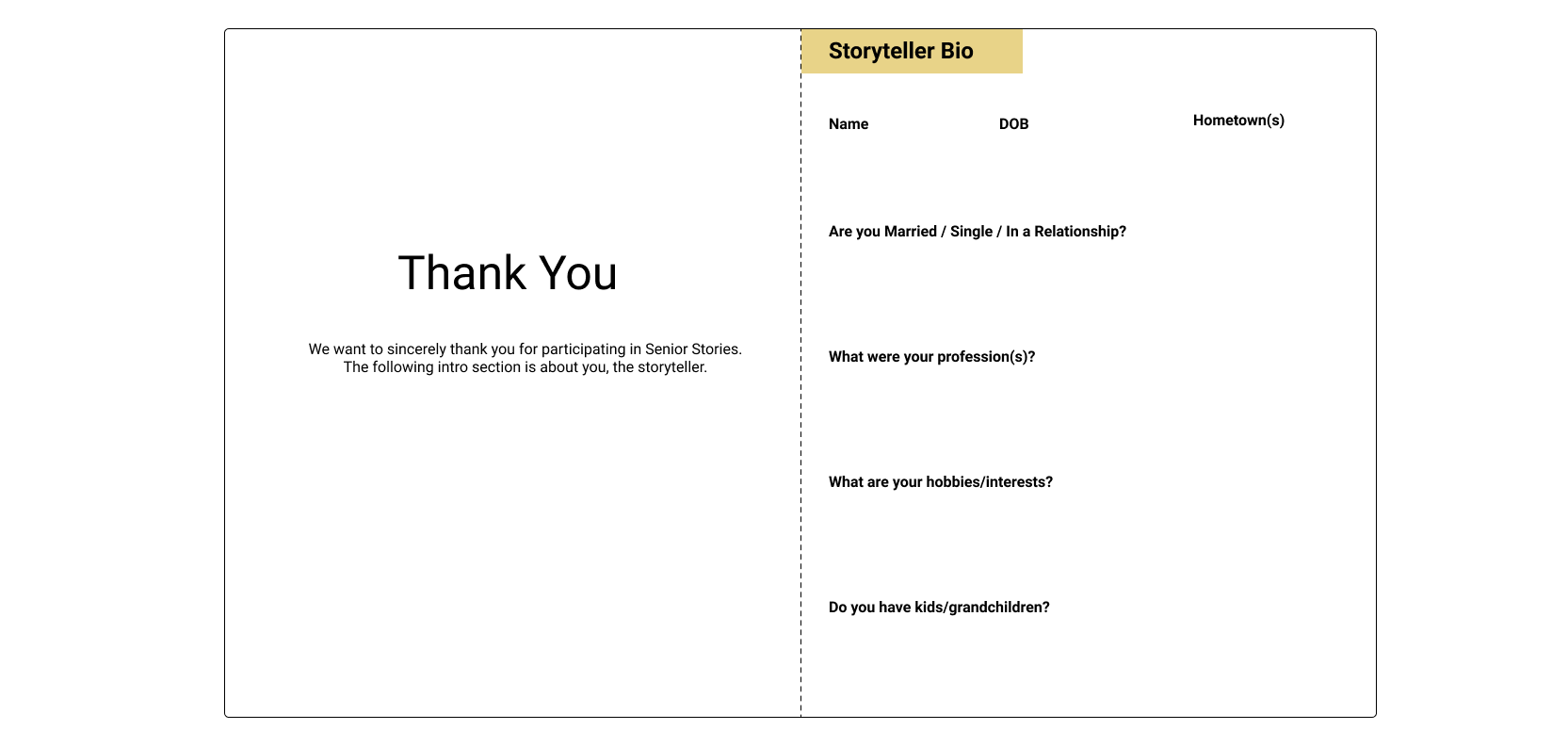
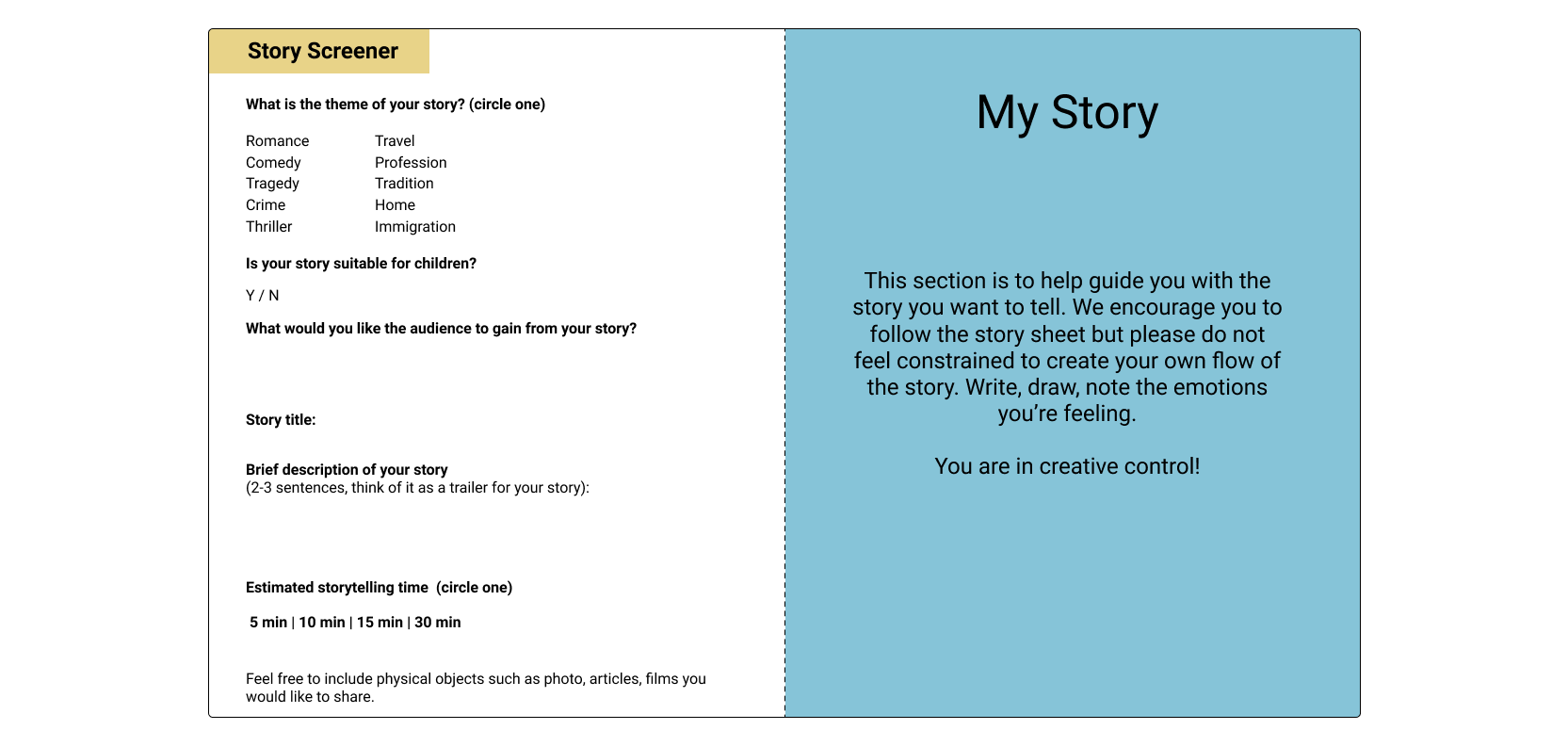
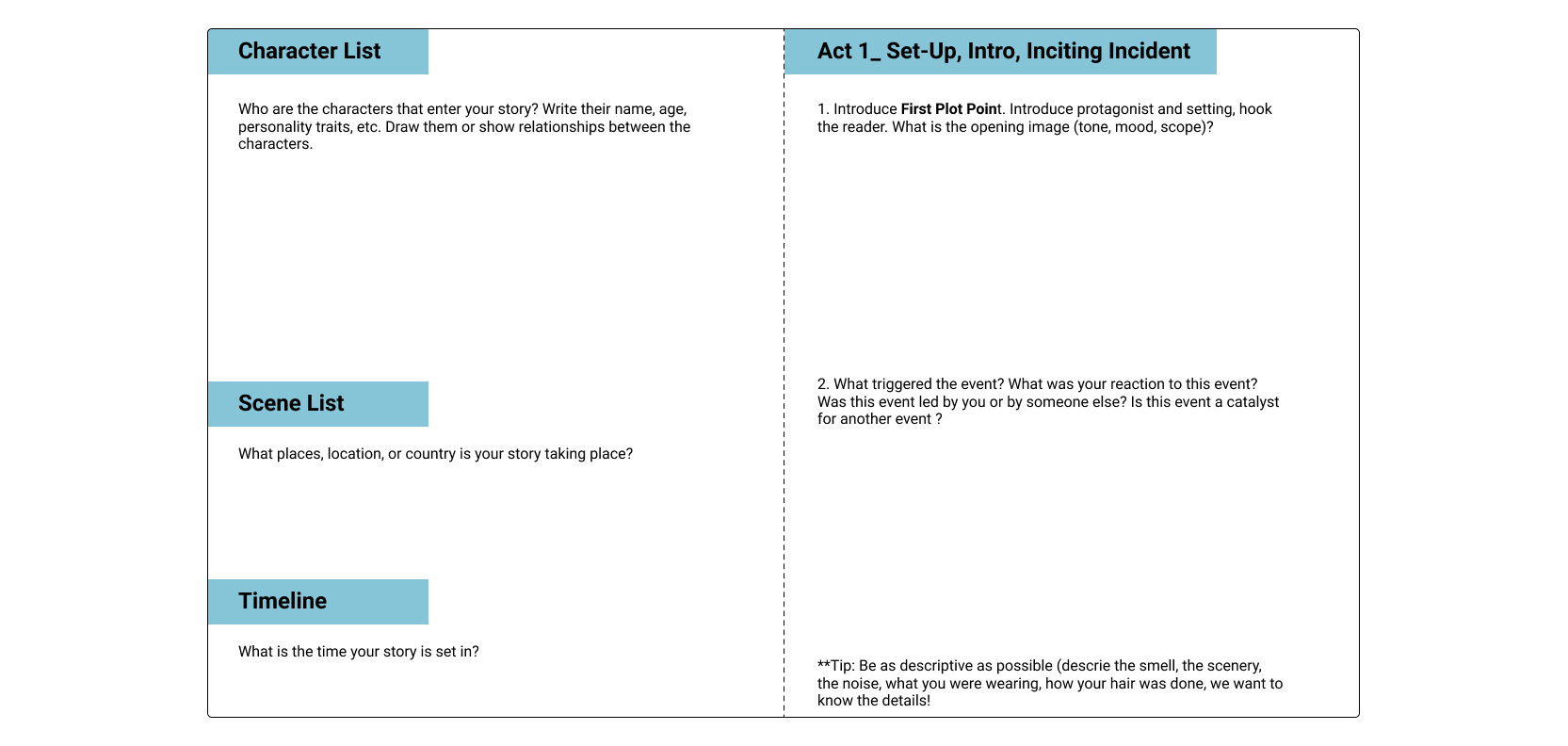
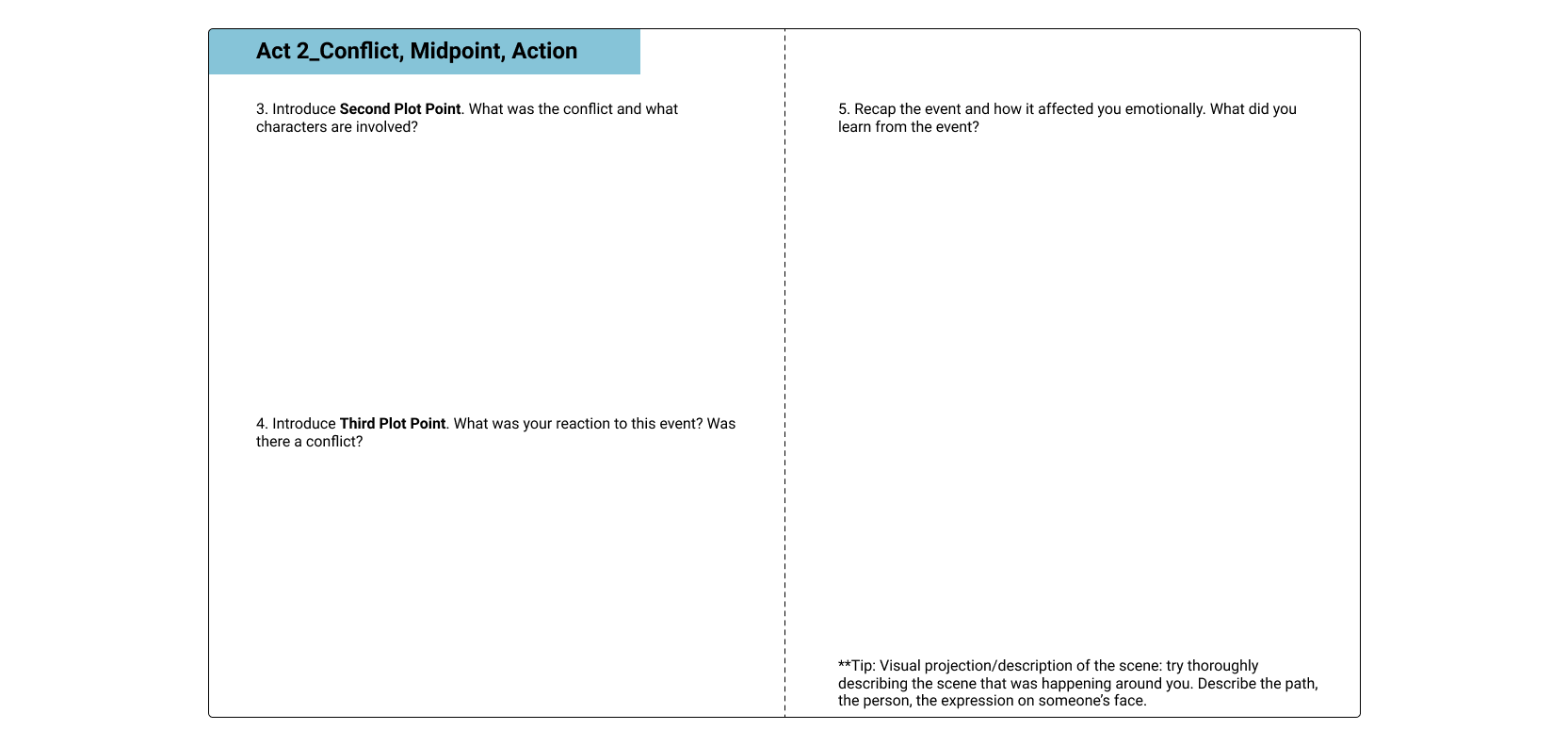
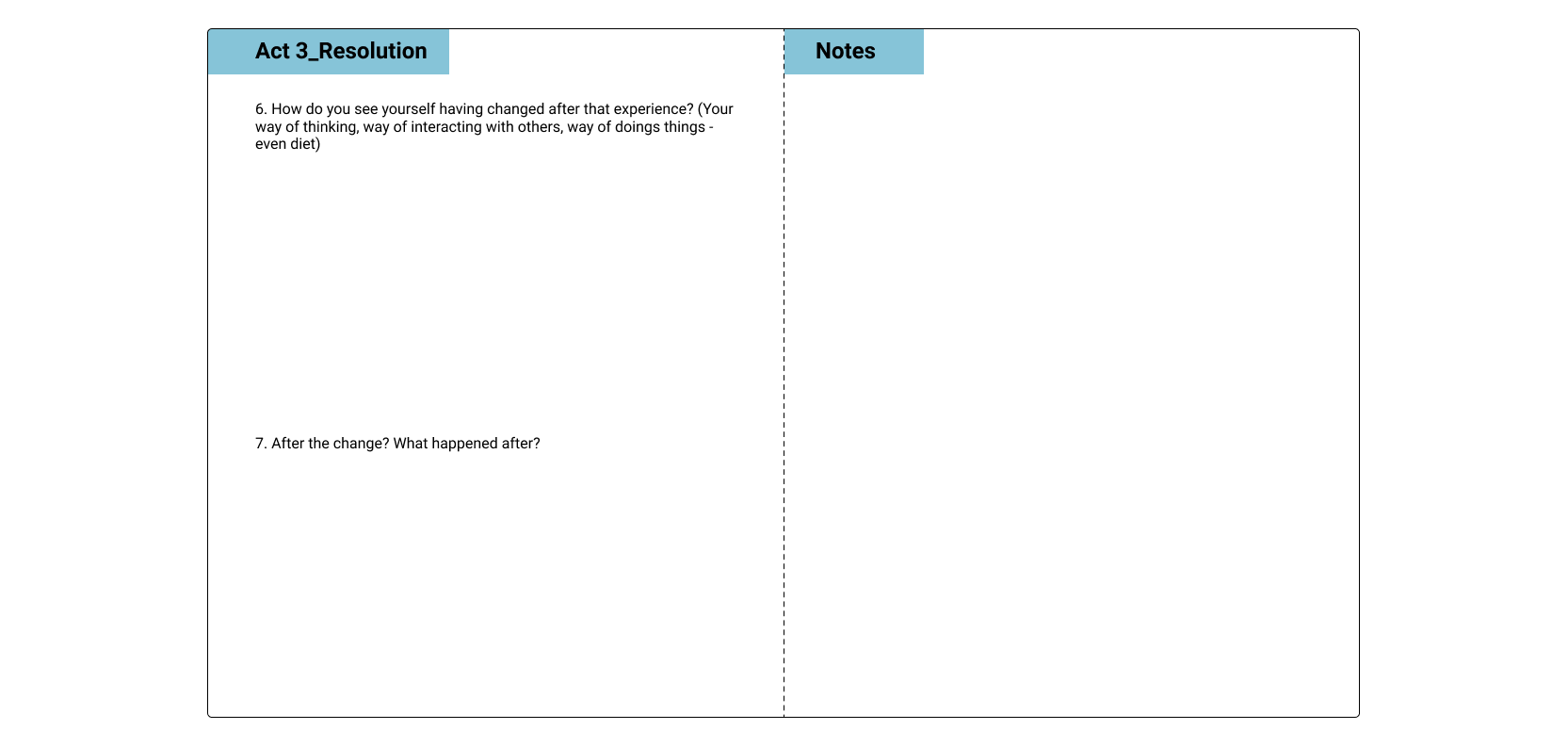
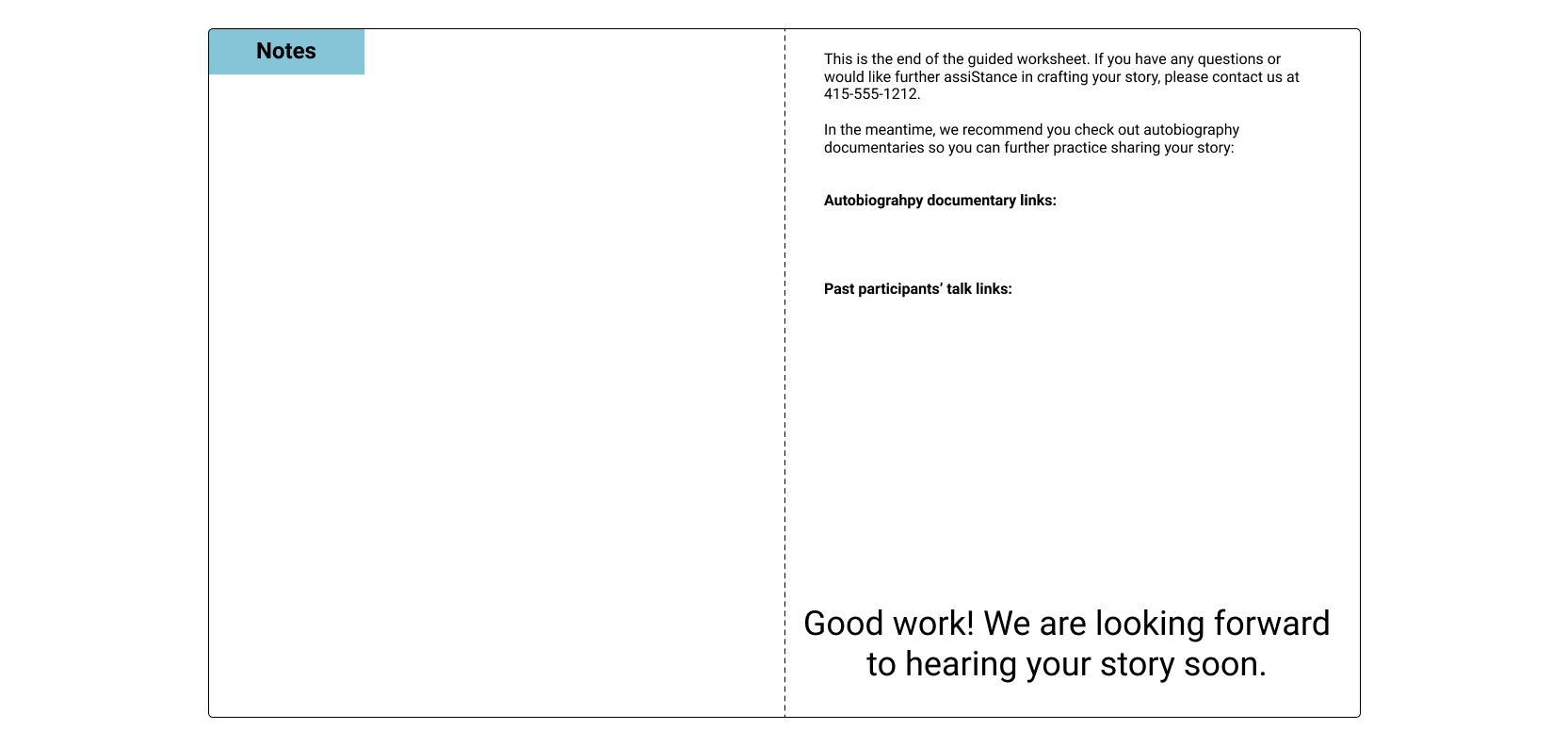
That still wasn’t the answer…
After attempting to craft a guide that would address a broad range of topics, we came to the conclusion that stories and the people who tell them are simply too dynamic for such a tool.
Inspired by a recent Fortune article which described how artificial intelligence is capable of generating fake news, we thought it was reasonable to give AI the task of organizing and soliciting components of a story along a narrative arc. Augmenting the facilitator’s role would enhance the quality of the story while allowing them to focus more on the interpersonal connection during the interview.
So we updated our hypothesis:
Engaging in storytelling gives elders the opportunity to recall their past which can fight cognitive decline.
AI can support family members, friends, or health care providers lacking interviewing experience to facilitate the storytelling process.
At this point we took a moment to narrow our focus as we began to experience a fair bit of scope creep. Having set out to provide aging adults a way of living more autonomously we realized that hosting a live event and creating a series of Podcasts was simply too ambitious for our 5-week timeline.
We really liked the idea of using storytelling as a way of fighting cognitive decline and believed that our new approach would allow us to hone in on the interpersonal relationship between elders and their caregivers in a way that would improve overall care.










